
TRENTON, NEW JERSEY, USA 26 DECEMBER 1776
As 1776 drew to a close, the rebel army under George Washington had suffered a string of demoralising defeats. Worse than that, they had often proved unable to stand against the larger British army, led by General William Howe. The Americans had broken and run at the Battle of Long Island and during the British landings on Manhattan. They had suffered further defeats at White Plains and Fort Washington and the campaign had apparently ended with Washington in full retreat, scrabbling to hold together the remnants of his army.
As Christmas approached, the British settled down for a winter in New York and made plans for their 1777 campaign. Howe prepared an overwhelming combination of operations and the revolutionary cause looked to be on the verge of dying, but while Howe made his plans for the following year, Washington had ideas to act much sooner.
Why did Washington attack the British at Trenton?
When the British ended their offensive operations for the year, they went into 'winter quarters'. This included an extensive string of posts in New Jersey, intended to encourage loyalists in the colony to feel confident enough to join the British cause. The posts were also necessary to ensure Howe could find enough forage for his horses. Howe was aware that he was stretching his resources thinly, nevertheless he believed the rebel army was a spent force and did not deserve the respect that he would have shown a more accomplished enemy.
Washington was in the depths of despair, knowing that his army was on the brink of complete collapse and seeing no hope of support from the local population. His numbers had dwindled to around 3,500 and only the Delaware River was between him and the British. As the weather worsened, the river would freeze and Washington feared the British would then cross it in force to hunt down his tiny army.
Denne historien er fra Issue 111-utgaven av History of War.
Start din 7-dagers gratis prøveperiode på Magzter GOLD for å få tilgang til tusenvis av utvalgte premiumhistorier og 9000+ magasiner og aviser.
Allerede abonnent ? Logg på
Denne historien er fra Issue 111-utgaven av History of War.
Start din 7-dagers gratis prøveperiode på Magzter GOLD for å få tilgang til tusenvis av utvalgte premiumhistorier og 9000+ magasiner og aviser.
Allerede abonnent? Logg på
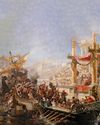
NAUMACHIA TRUTH BEHIND ROME'S GLADIATOR SEA BATTLES
In their quest for evermore novel and bloody entertainment, the Romans staged enormous naval fights on artificial lakes
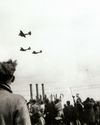
OPERATION MANNA
In late April 1945, millions of Dutch civilians were starving as Nazi retribution for the failed Operation Market Garden cut off supplies. eet as In response, Allied bombers launched a risky mission to air-drop food

GASSING HITLER
Just a month before the end of WWI, the future Fuhrer was blinded by a British shell and invalided away from the frontline. Over a century later, has the artillery brigade that launched the fateful attack finally been identified?
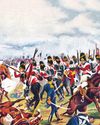
SALAMANCA
After years of largely defensive campaigning, Lieutenant General Arthur Wellesley went on the offensive against a French invasion of Andalusia

HUMBERT 'ROCKY'VERSACE
Early in the Vietnam War, a dedicated US Special Forces officer defied his merciless Viet Cong captors and inspired his fellow POWs to survive
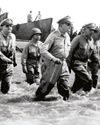
LEYTE 1944 SINKING THE RISING SUN
One of the more difficult island campaigns in WWII's Pacific Theatre saw a brutal months-long fight that exhausted Japan’s military strength

MAD DAWN
How technology transformed strategic thinking and military doctrine from the Cold War to the current day
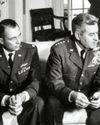
BRUSHES WITH ARMAGEDDON
Humanity came close to self-annihilation with the Cuban Missile Crisis, Broken Arrows’ and other nuclear near misses
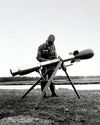
THE DEADLY RACE
How the road to peace led to an arms contest between the USA and USSR, with prototypes, proliferation and the world’s biggest bomb

THE MANHATTAN PROJECT
Einstein, Oppenheimer and the race to beat Hitler to the bomb. How a science project in the desert helped win a war